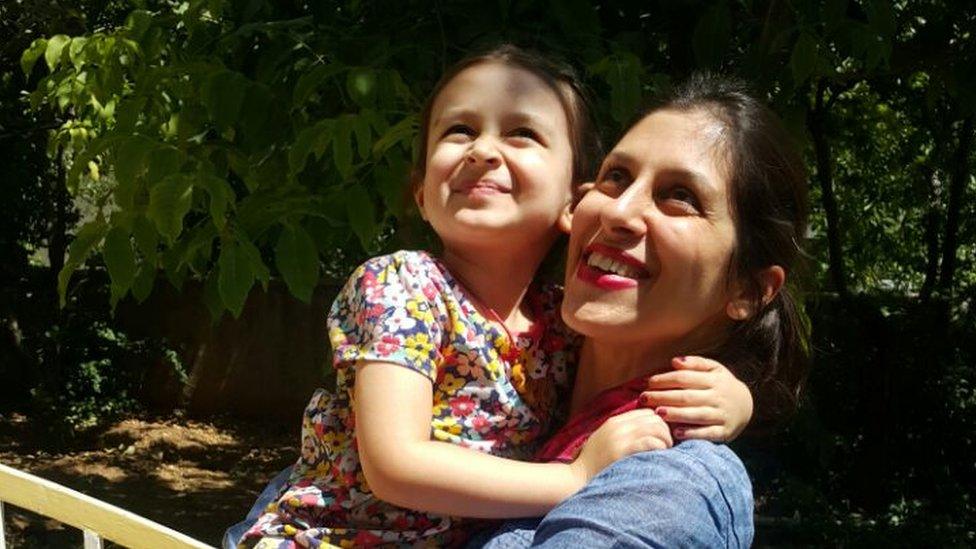Gulf of Oman: Iran protests to UK ambassador
- Published
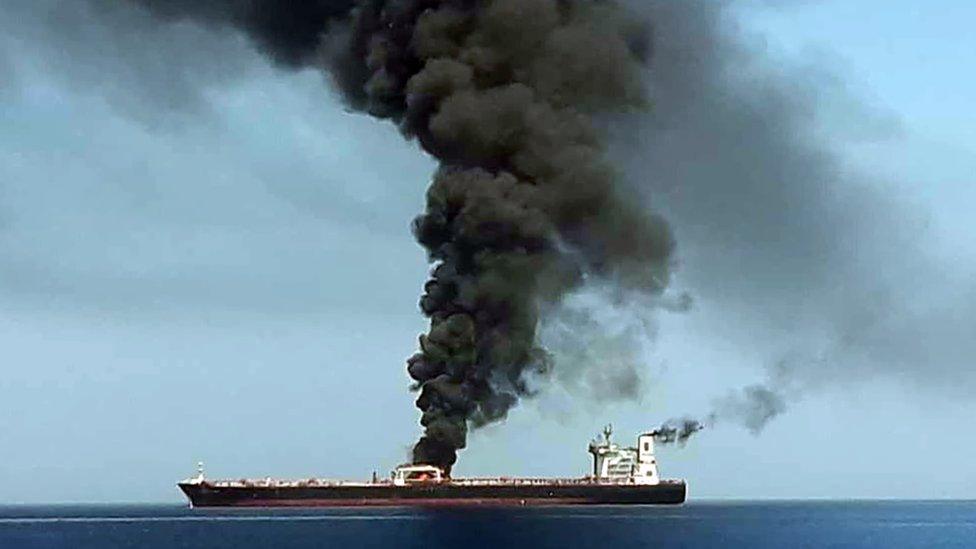
Images from Iranian State TV showed smoke billowing from a tanker in the Gulf of Oman
Iran has protested to Britain's ambassador in Tehran after being accused of involvement in attacks on two oil tankers in the Gulf of Oman.
Iran has denied involvement, but Foreign Secretary Jeremy Hunt said Iran was "almost certainly" responsible.
UK ambassador to Iran Rob Macaire said he asked for an "urgent meeting" with the Iranian Foreign Ministry on Friday.
Meanwhile, as tension grows in the region, a British-Iranian jailed in Tehran has begun a new hunger strike.
Mother-of-one Nazanin Zaghari-Ratcliffe was jailed for five years in 2016 after being convicted of spying - which she denies.
Her husband, Richard Ratcliffe, is joining her in refusing food and has set up a tent outside the Iranian embassy, where he plans to stay while his wife is on hunger strike, to protest against her "unfair imprisonment" and demand her unconditional release.
Mr Macaire denied reports the meeting with a senior Iranian foreign ministry official was a formal diplomatic summons.
Allow X content?
This article contains content provided by X. We ask for your permission before anything is loaded, as they may be using cookies and other technologies. You may want to read X’s cookie policy, external and privacy policy, external before accepting. To view this content choose ‘accept and continue’.

But BBC diplomatic correspondent Caroline Hawley said Iran is "clearly angry" at the British accusations and "made its displeasure known" through the meeting.
Security correspondent Frank Gardner looks at the evidence which the US says proves Iran's involvement in Thursday's attacks
Speaking on the BBC's Andrew Marr Show, Mr Hunt reiterated that the UK's own intelligence assessment had concluded the Iranian regime was "almost certainly" behind the attacks on 13 June.
"We have got videos of what happened, we have seen evidence. We don't believe anyone else could have done this," he said.
Mr Hunt said there was a "great risk" of war over the incident and the UK was urging all sides to de-escalate the situation.
"Having spoken to President Trump, I am absolutely clear that for America they want this to end in negotiations that see Iran stop its destabilising activities," he said.
"That is the long term solution here."
Defence minister Tobias Ellwood told Sky's Sophy Ridge on Sunday that the UK would be working to de-escalate tensions but would be "determined to protect our assets and our interests in the region".
Thursday's attacks on Norwegian and Japanese vessels in the key shipping route were the second time in the past few weeks that tankers appear to have been targeted in the region, as relations continue to sour between Iran and the United States.
The US military released video footage which it said proved Iran was behind the incident. Washington said the footage shows Iranian forces removing an unexploded mine off the hull of one of the ships - hours after the initial detonations.
However, Labour leader Jeremy Corbyn has questioned whether the UK has "credible evidence" proving Iran's responsibility.
Although Iran has denied being behind the explosions, experts believe it could be a response to US sanctions intended to stop other nations from purchasing Iranian oil.
After the sanctions were tightened last month, Iran announced that "if it could not export its oil, no other country would be allowed to export theirs", Dr Aniseh Bassiri Tabrizi, from the Royal United Services Institute, said.
Richard Ratcliffe: "We're not pleading nicely, it's a fairly in-your-face kind of act"
Saudi Arabia has also blamed its rival Iran for the attacks.
UN Secretary General Antonio Guterres said the truth needed to be "clearly established", while Russia has warned against drawing "hasty conclusions".
The blasts came a month after four oil tankers were damaged in an attack off the coast of the United Arab Emirates. The US blamed Iran for that attack, but did not produce evidence. Iran also denied those accusations.
Tensions between the US and Iran have escalated significantly since President Trump took office in 2017.
He abandoned a nuclear deal that was brokered by Barack Obama's administration and significantly tightened sanctions on Iran.
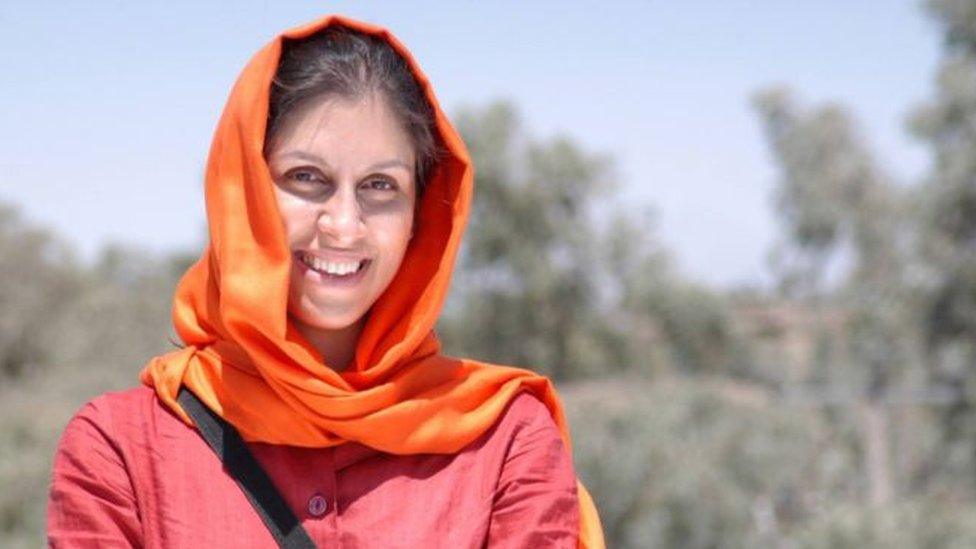
Nazanin Zaghari-Ratcliffe has been detained in Iran since April 2016
Meanwhile Mr Hunt has urged Iran to release jailed British-Iranian Mrs Zaghari-Ratcliffe, saying "whatever the disagreements you may have with the United Kingdom, there is an innocent woman at the heart of this".
Mr Ratcliffe said, while he didn't expect his wife to be released immediately, the message of her hunger strike was "enough is enough".
He told Andrew Marr he was watching developments related to the tanker attacks closely.
"We are always worried and there is never a good time for our story," he said.
He added that while there were "mixed signals" coming from Iran, he hoped the situation would not escalate.
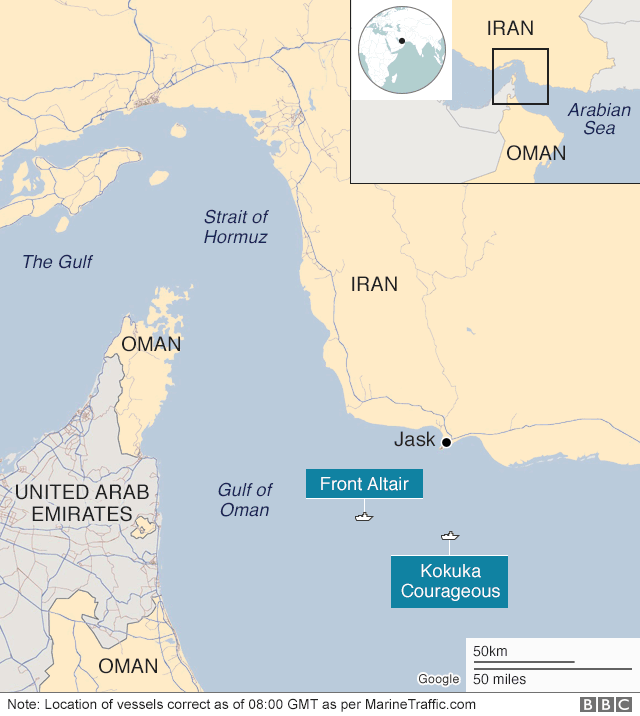
- Published15 June 2019
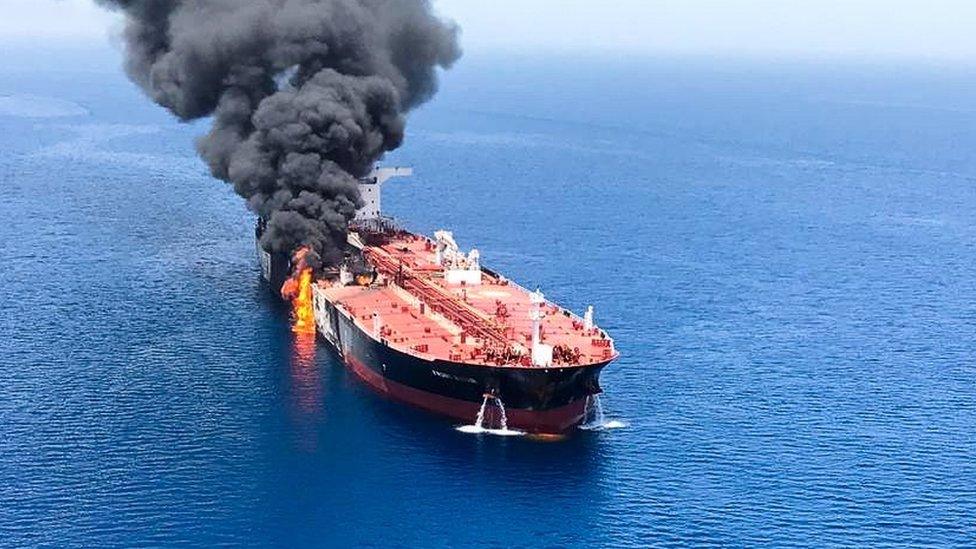
- Published16 June 2019
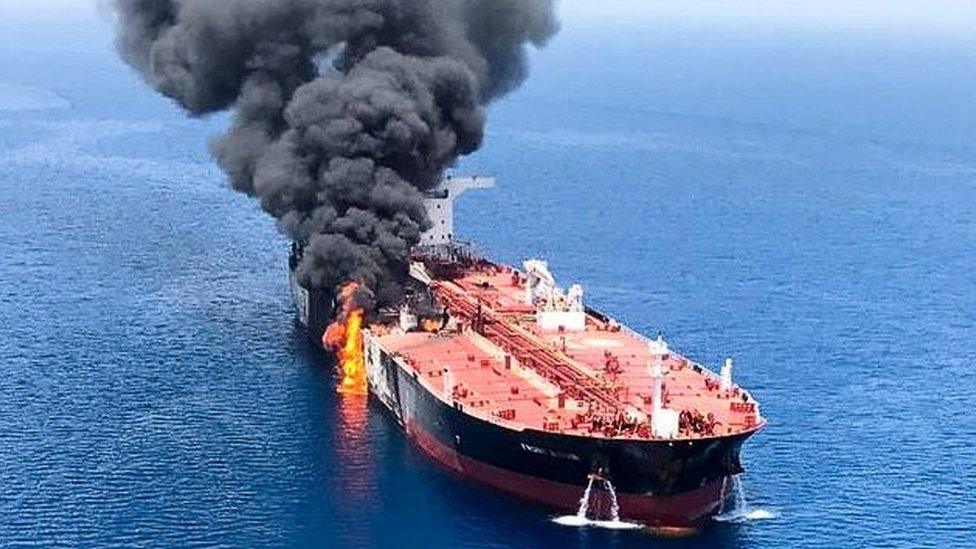
- Published18 June 2019
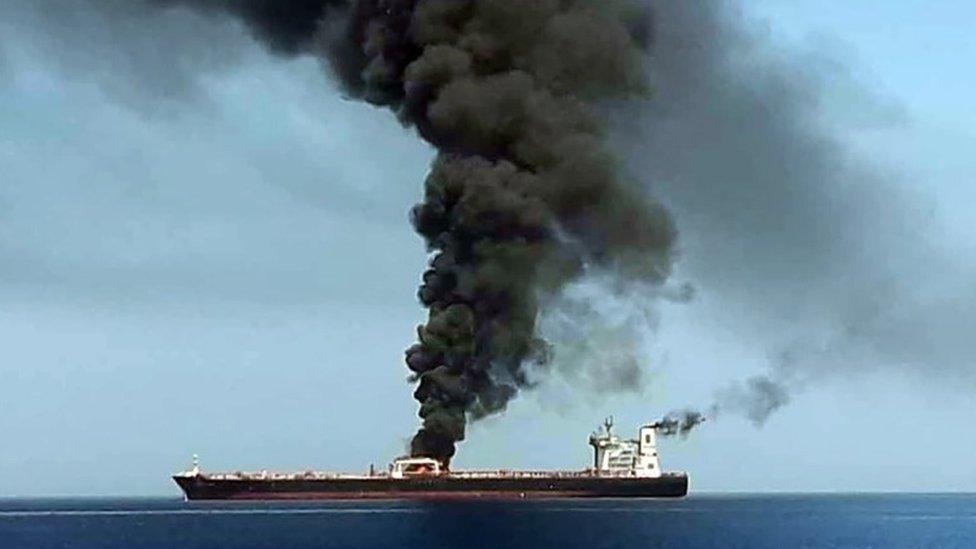
- Published14 June 2019
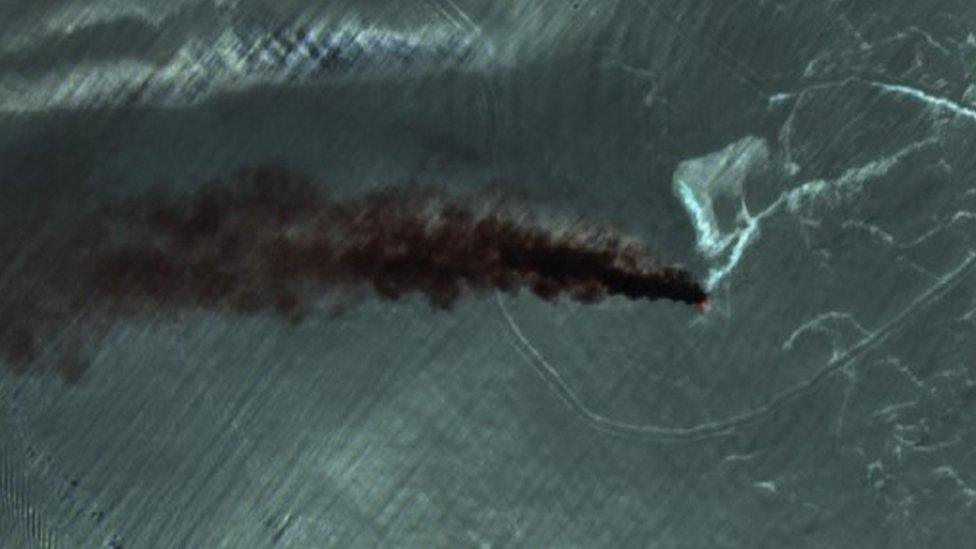
- Published15 June 2019
